Remember
Revise these time expressions - Telling the time # 1
Learn
Requires Real Player Basic
Telling the time to the half hour or quarter hour
There are 15 minutes in quarter of an hour.
There are 30 minutes in half an hour.
There are 45 minutes in three quarters of an hour.
When it's past the hour (up to 30 minutes past) we say "past".
When it's before the hour (after 30 minutes past) we say "to".
30 minutes is half an hour, we say "half past" or "thirty".
15 minutes is quarter of an hour. At 15 minutes past the hour we say "quarter past" or "fifteen". At fifteen minutes to the hour we say "quarter to" or "forty-five".
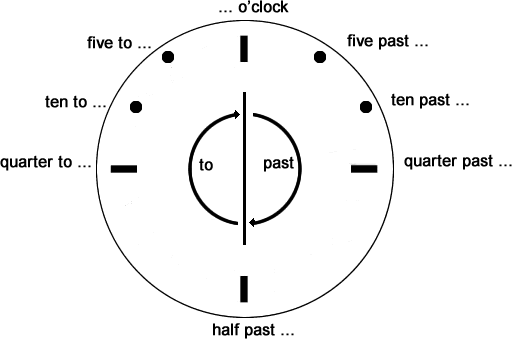
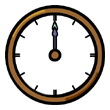 |
Twelve o'clock | 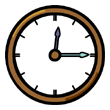 |
Twelve fifteen or Quarter past twelve |
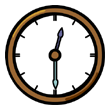 |
Twelve thirty or Half past twelve |
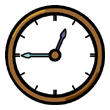 |
Twelve forty-five or Quarter to one |
!Note - you don't mention the "minutes".
Naturally speaking
Exactly or about
| Exactly | About | ||
|---|---|---|---|
|
|
How to ask the time - requires Real Player Basic
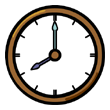 |
or
|
|
 |
or
|
|
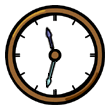 |
or
|
Writing the time
AM |
00:01 - 11:59 |
write a.m. - stands for Ante Meridiem (the time between midnight and noon) |
00:01 to 11:59 |
| write noon or midday |
12:00 |
write p.m. - stands for Post Meridian (after noon) |
12:01 - 23:59 |
| write midnight |
24:00 |
Speaking about the time generally
If you say "Good morning" at 1 am, people will think you are strange. Different rules apply, which are more to do with how light it is. See also "Greetings".
Daytime - the time between sunrise and sunset |
Starts at sunrise / dawn |
morning - the time between sunrise and noon |
sunrise - 11:59 |
afternoon - the time between noon and sunset |
12:01 - sunset |
Nighttime - the time between sunset and sunrise |
Starts at sunset / dusk |
evening - the time between sunset and night (full darkness) |
sunset - darkness |
night - the time after evening and before sunrise |
dark - sunrise |
There are 24 hours in a day, but only the military, police and computer programmers use the 24-hour clock. When writing or speaking generally we tend to use the 12-hour clock.
The 24 hours of the day are divided into two periods called a.m. (Latin "ante meridiem" | English: "before mid day") and p.m. (Latin "post meridiem" | English: "after mid day").
The way people write the time varies. I prefer a.m. and p.m.
Choose from the following styles or use what your English teacher tells you to and stick to it:-
a.m. p.m.
am pm
AM PM
A.M. P.M.
Some people use a dot as the separator: 2.30 pm.
Some people use a colon as the separator: 2:30 pm. The colon is usually used with the 24-hour clock: 14:30.
Your challenge: Tell us the time your bus, tram, train, plane arrives?
!Note - All posts are moderated and then corrected. One correction per person per lesson.
Wouldn't it be cool if there were a teacher available here 24/7? Well, you could help us achieve our dream, and support us in updating and improving these resources by making a donation:-
Next Lesson - Telling the Time in English # 3
Previous Lesson - Telling the Time in English # 1
Test your time - match the pictures with the time - Match It!
Have a look at this web site and see what time it is all over the world (opens in second window)
Listen to this fun song to see when you might suddenly have to say "Good morning".

